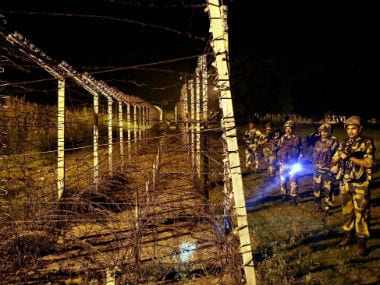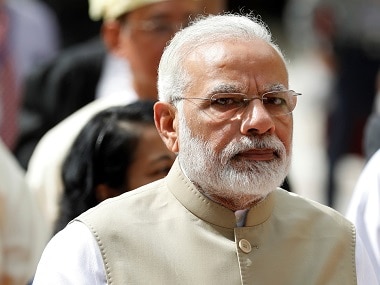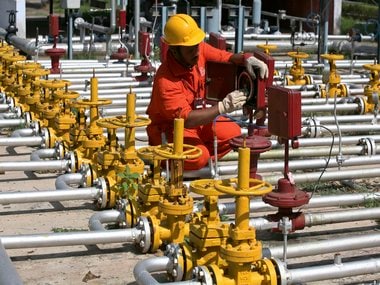There were no earth-shattering announcements in the recent national Budget related to the security concerns of the country. On the contrary, this year’s allocation, though an increase of 7.8 percent, year on year, is one of the lowest in terms of percentage of the GDP. Economists peg it to 1.58 percent of the GDP, which is the lowest ever since the bygone era of Sino-Indian conflict of 1962. The negative impact of this is cumulative and will be long-lasting, as this is in face of existing critical deficiencies and shortcomings.
There is no doubt that inclusive growth should be a priority, but India’s unique security dynamics demand a realistic allocation of funds, action and just not lip service. The star projects of the three services are already languishing in the corridors of the ministries of defence, finance, and law and justice. The reasons are a combination of changing political and financial priorities, inadequate appreciation of the requirements, bureaucratic hurdles and our own designed tedious procedures cum processes.

Representational image. PTI
In my opinion, we are the only country that, in the name of propriety, frames regulations which are exhaustively tardy to the point of being infructuous and then take their recourse to reject our own critical acquisitions. The delay is further exacerbated due to the short tenure of senior military leadership on critical appointments dealing with procurements. What needs to be appreciated is that delay year on year, leads to ‘less for more financial outlay’, denying us the ‘desired bang for the buck’. This results in irreversible negative ramifications on the operational preparedness of the armed forces.
The budget was path-breaking in its idealism to address the concerns of the agrarian community and measures for giving impetus to the ‘Swasth Bharat’ mission. They are both timely and laudatory, but the overall tenor of the budget was with an eye on next year's Lok Sabha elections. The salaried class was left gasping, for instead of any major windfalls, their savings in the equity/bond market are now taxable for long term capital gains. These and other nuances of the budget will come up for discussion and scrutiny in the next few days but what really raises conflicting emotions are the short shifting of issues relevant to the men in olives, white and blue, in the budget.
The financial apathy in the allocation of requisite wherewithal for national security concerns under the jurisdiction of the armed forces was seen across sectors. Be it equipping, modernisation, border infrastructure, qualitative upgrades in equipment, development of asymmetric capabilities and corresponding disinterest in the systematic erosion of the intangibles of soldiering, like status and remunerations.
This coupled with recent events where the military is made the scapegoat or used for political one-upmanship raises a very fundamental question:
Are the armed forces trophies to be displayed on events like Republic Day or glorified to raise the national fervour in case of ‘surgical strikes’, or is there a genuine concern for making them razor sharp/empower them to meet the disruptive external and internal security challenges?
A few recent events contribute to this quandary. In the immediate past was the political gamesmanship we witnessed in Kashmir, where, to placate the misplaced sentiments of the chief minister, an FIR was lodged against the aggrieved party: The army personnel. They were the victims, as they were attacked by a mob that resorted to carnage, resulting in the dastardly act of burning of military vehicles and threatening the personal security of the soldiers.
In self-protection, they had to resort to firing with collateral damage. There were no political spokespersons exemplifying the concerns of the soldiers involved in the incident, including the defence minister. In another incident, the army was asked to make a bridge in the financial capital of the country, when India has some of the best infrastructure construction companies in the world. In contrast, the northern borders of the country are still bereft of critical road and bridge connectivity. This affects the maintenance of security in these inhospitable areas. The shortcomings are not appreciated due to lack of expertise at the appropriate levels of decision-making. The silence is deafening when there is unwarranted mud-slinging and un-parliamentary remarks against the COAS by responsible member of the political hierarchy.
It is the failing of the military man that he is trained to complete his task against all odds and expects the others in the executing chain to address their responsibilities in an equally capable or timely manner. There is lack of accountability of the defence developmental and manufacturing agencies, who have repeatedly failed to meet the timelines, abrogated financial prudence and provisioned sub-standard and obsolete military hardware. The bureaucratic protection that they enjoy makes it all the more onerous for the finance and defence minister to ensure provisioning of the right tools in a timely manner to the soldiers.
In conclusion, it would be apt to highlight that the armed forces are one of the foundation pillars of the Indian democracy. Let not envy-cum-resentment by the other organs lead to erosion of its core strengths. Also, honing the kinetic elements of the nation is an essential prerequisite for the country to realise its vision of becoming a major player in the evolving international landscape.
(Lt Gen Sahni is a former C-inC, Indian Army and Distinguished Fellow with think tanks of USI and CLAWS.)
Published Date: Feb 03, 2018 09:58 AM | Updated Date: Feb 03, 2018 10:01 AM









